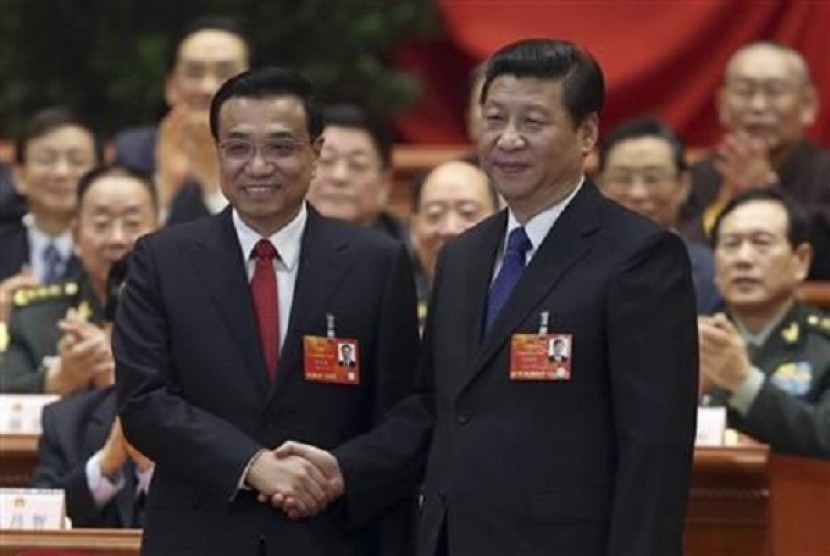REPUBLIKA.CO.ID, BEIJING - China's legislature formally chose Li Keqiang as premier on Friday, installing an English-speaking bureaucrat as the man in charge of the economy, the world's second-largest, and its aim of reviving growth through consumer-led expansion. The largely rubber-stamp National People's Congress, as expected, chose Li 57 (years) to replace Wen Jiabao.
Nearly 3,000 delegates gathered in Beijing's Great Hall of the People to vote on Li's appointment, putting the final stamp of approval on a generational transition of power. Li drew only three no votes and six abstentions from the carefully selected parliament.
Li rose and shook hands with Xi Jinping, who was elected president by the legislature on Thursday, as legislators applauded. A beaming Wen walked over to Li, shook his hand and exchanged words.
While Xi is the country's top leader, Li heads China's State Council, or cabinet, and is charged with executing government policy and overseeing the economy.
As premier, Li is faced with one of the world's widest gaps between rich and poor, an economy over-reliant on investment spending and a persistently frothy housing market that has stoked resentment among the middle class.
"I believe that in this class (of new leaders), his intent to reform is quite strong," said Chen Ziming, an independent political commentator in Beijing. "He has a close relationship with reform-minded economists. We've seen from his speeches after the 18th party congress that the gap between them and him isn't far."
More than any other Chinese party leader until now, Li was immersed in the intellectual and political ferment of the decade of reform under Deng Xiaoping, which ended in the 1989 Tiananmen Square protests that were crushed by troops.
As a student at Peking University, Li befriended ardent pro-democracy advocates, some of whom later became outright challengers to party control. His friends included activists who went into exile after the June 1989 crackdown.
"He has a better understanding of how Westerners think," a source familiar with China's foreign policy told Reuters.
Li, who has a degree in law and a doctorate in economics, will take the reins of an economy whose growth slowed in 2012 to a 13-year low, albeit at a 7.8 percent rate that is the envy of other major economies.


